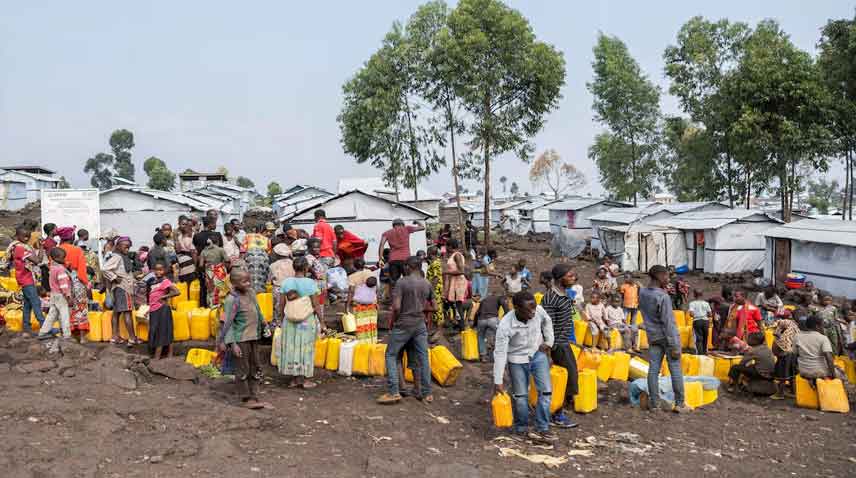
Justine Munguiko could not recall the name of the disease she had been warned about. She knew only that her baby Fidele had painful sores similar to those suffered by other children at the displacement camp near the eastern Congolese city of Goma.
Communities like Munguiko s are among the most exposed and in need of support.
She and other mothers at the camp decided to treat their children in a traditional way for dealing with fevers and rashes: washing them in boiled salty water and rubbing their skin with the soft leaves of the Kitamatama plant.
Also read: Thailand records mpox case in European traveller from Africa
"This disease of skin lesions, comes from I don t know where... We ve been told it comes after eating bushmeat, but neither I nor my child have eaten bushmeat," the 24-year-old said, after trying to soothe her crying baby, who still had crusty sores on his wrists and feet.
As the international community struggles to source enough vaccines, Munguiko’s experience highlights the amount of work needed to ensure the most vulnerable have the knowledge and resources to protect themselves from the viral infection that is usually mild, but can kill.
Communicating with people about what they should do is critical, said Ebere Okereke, associate fellow at Chatham House’s Global Health Programme.
"We need to get the right information out to the people who are immediately at risk," she told Reuters.
There have been around 27,000 cases and more than 1,100 deaths, mainly among children, in Congo since the current outbreak began in January 2023. The virus has also spread to nearby countries.
At Kanyarutshinya camp on Monday, residents gathered in an open area between the rows of tents to hear a health worker from aid organisation Medair explain how to avoid infection. They received a colourful leaflet with pictures showing the risk of close contact with infected animals or people.
The challenge in Congo and other African countries is compounded by a lack of funding for research, said Helen Rees, co-chair Of South Africa’s mpox incident management team.
"We still globally do not have a good understanding of mpox ... outbreaks, how it spreads, how many asymptomatic cases we have for every case that we find with symptoms," she told Reuters.
Those on the ground are eager to learn more also. Camp resident Bizimungu Habimana, 46, examined the leaflet closely after the Medair presentation.
"We thought there was no medicine or cure for this disease. I’m so glad to hear it s curable," he said.




